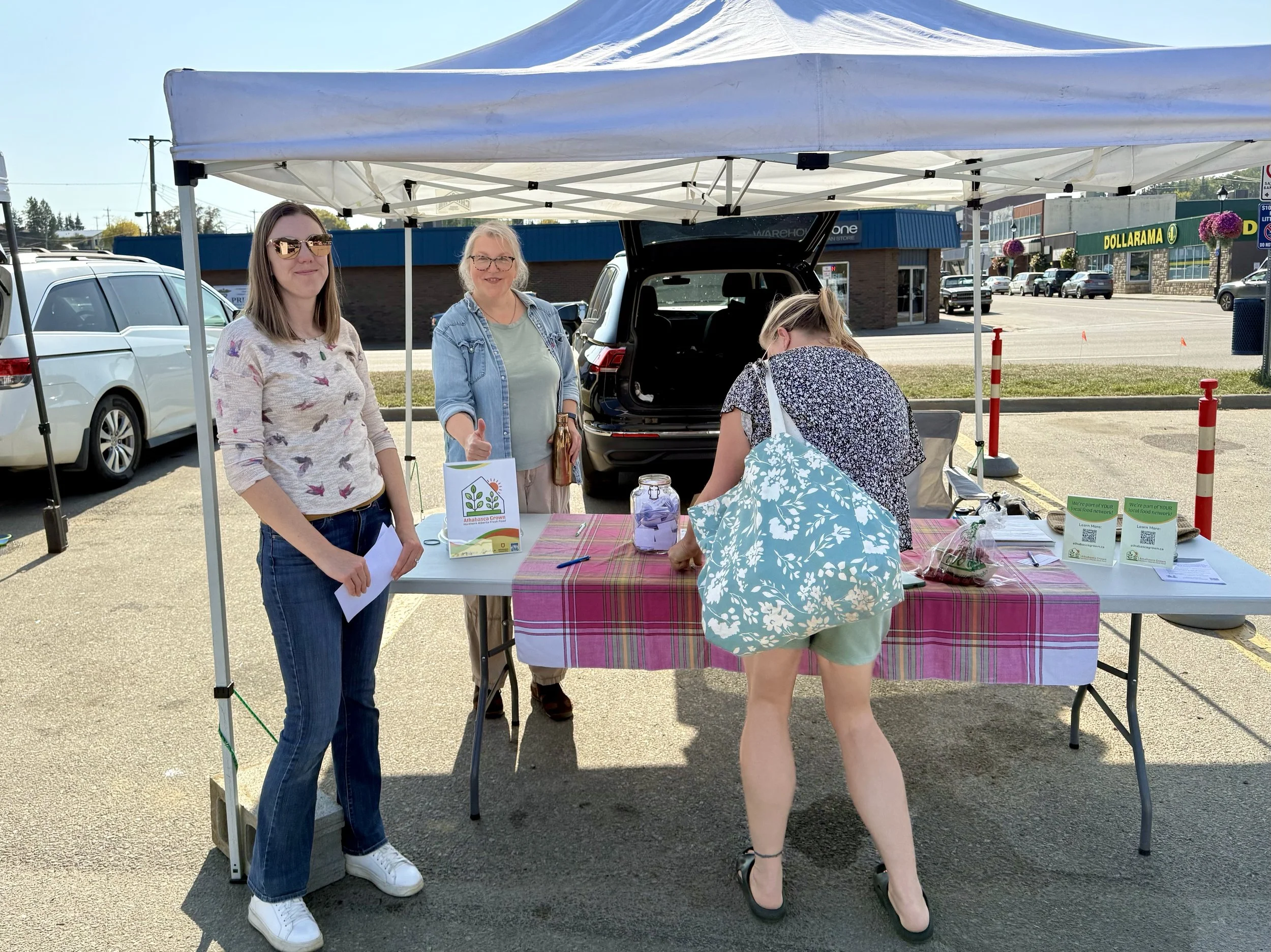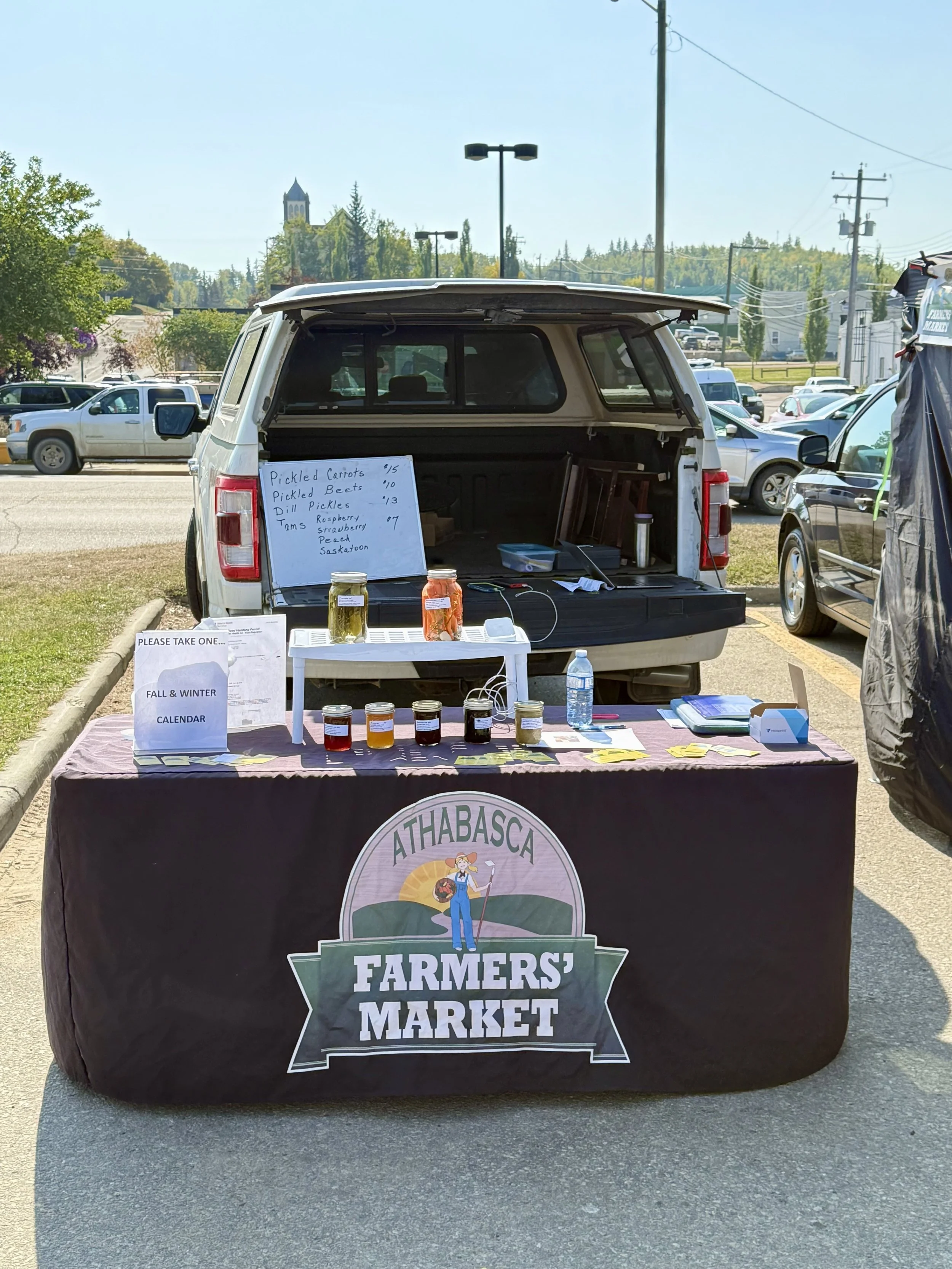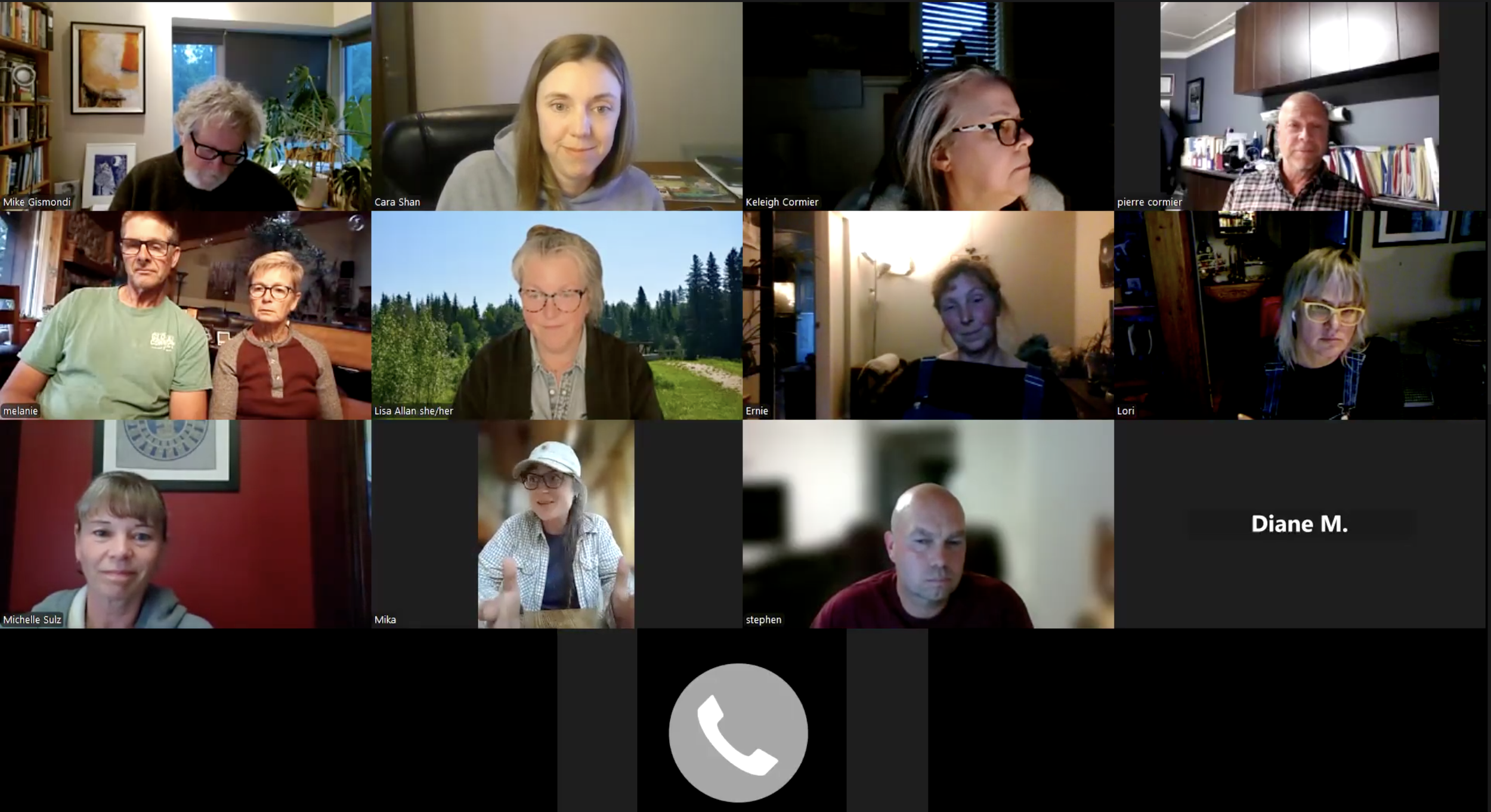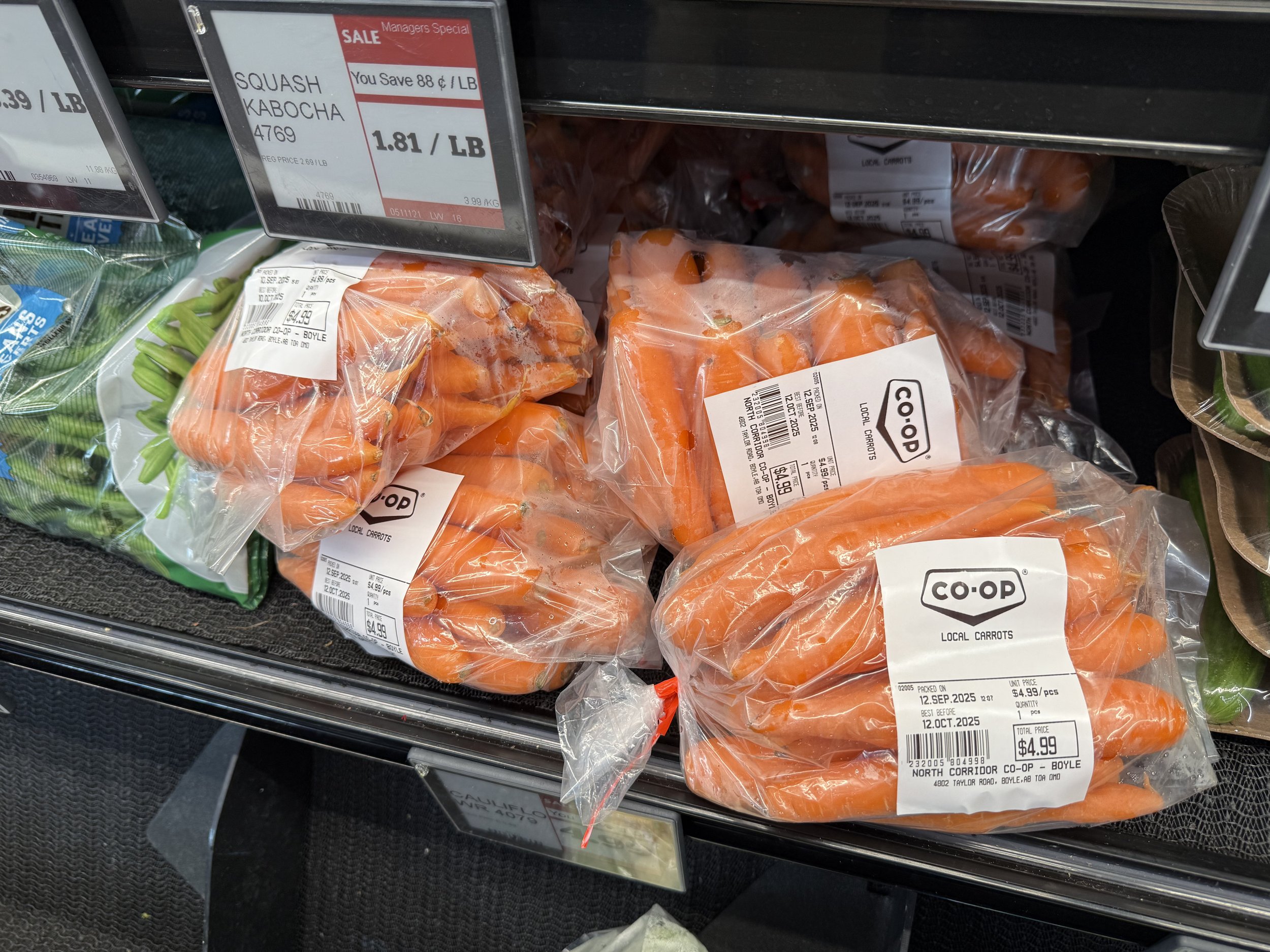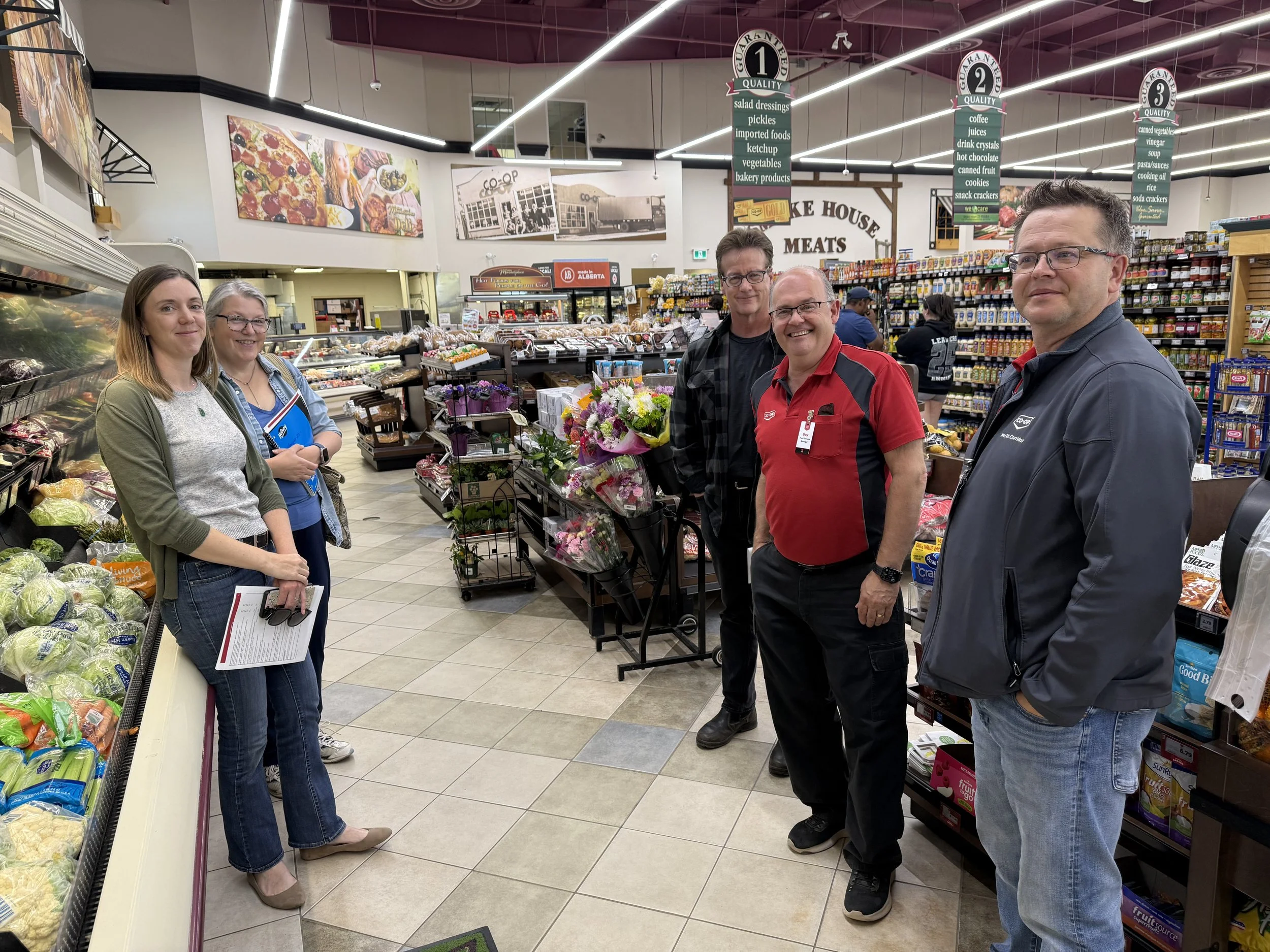Project Update: New Ideas, Brand Recognition and Report Work!
Even during the lazy days of summer, the Athabasca Grown team has been working hard behind the scenes! Lots of reading, writing and chatting about local food systems. A common thread in our inquiry is that people are excited to talk about local food and want more of it in their lives.
We’re working on it!
Brand Recognition & Athabasca Farmers’ Market
One thing we learned during the public engagement sessions is that many local consumers aren’t aware of who grows produce and other direct-to-consumer foods locally.
We wanted to highlight the many fantastic local food producers whom we have met through the project, to connect them with consumers who are looking to buy local. With that in mind, we have started a brand recognition program that highlights these producers. They host a sign on their public-facing display with information that directs customers to a web page with everyone’s contact info.
To promote the new program and the overall project, the team had a table at the September 13th Athabasca Farmers’ Market! We had a great time talking to folks about locally produced food and the greenhouse project. Everyone we talked to expressed interest or delight in the greenhouse idea! Our local growers provided goodies for a door-prize draw, which gathered over 100 entries!!!
Circle of Champions meeting, August 21, 2025.
Circle of Champions: August 21, 2025
The “Circle of Champions” met in July for a potluck, and online on August 21st for a wide-ranging conversation about the project. There were many ideas on generating revenue, marketing, business structure, partners and more!
We looked at some excellent work provided by Michelle Sulz (Norland Brae Farm) on what possible crops to grow, what revenue to expect from those crops, and how best to lay out the greenhouse beds.
We also looked at an updated illustration of the proposed greenhouse design with steep-angled glazing and a deep climate battery.
Watch the website or our Facebook page for details on the next Circle of Champions meeting.
If you would like more information on what it means to be a part of the Circle of Champions, contact us at info@athabascagrown.ca.
Selling to Grocers & Commercial Buyers
We have met with several commercial buyers to learn how smaller producers could sell their produce to local grocers and institutions. Mike G. has met with folks from Tipton’s Independent and Save On Foods. The team went out to Boyle, AB, to meet with folks from North Corridor Co-op.
All of the grocers are interested in providing their customers with locally grown produce, and each has its own procurement system. Some of the requirements are burdensome for smaller growers, both financially and logistically, but produce can be one of the less stringent categories of goods to trade. At North Corridor, they had produce from the local Hutterite Colony, which Members ask for and generally sells out.
We have gathered a lot of great and surprising information. The amount of produce that moves through these stores is not insignificant, and when you hear the numbers, knowing what can be produced in one greenhouse, the sheer scale of our food system becomes apparent.
There has also been discussion with larger institutional buyers who have more flexibility in purchasing from small growers. These commercial organizations are also interested in providing their customers with fresh local produce.
Overall, discussions have been encouraging regarding the demand for a supply of locally grown winter produce
Report on Northern Food Sustainability & Community Greenhouses
A team of researchers from the Diversity Institute, Toronto Metropolitan University and Green Iglu, a non-profit that provides greenhouse infrastructure and community-led training programs, have produced a report on “the state of community greenhouses in Canada, with a focus on the Far North. It reviews labour and skills issues in different contexts and examines training programs, illustrated with case studies.
Some key findings:
Demand exists for labour and skills in the greenhouse sector
Technological innovation and the expansion of community-based initiatives are transforming the sector
Labour and skills are a challenge in remote communities and urban areas, where community projects rely on volunteers
More work needs to be done to support greenhouse farming and serve equity-deserving groups and remote Indigenous communities.
High school students can earn credits through the Green Certificate Program.
Green Certificate Greenhouse Module
At the “Circle of Champions” meeting, a Member brought up high school training programs for greenhouse jobs. We looked into it and discovered Alberta has a great agricultural education opportunity called the Green Certificate Program. It is an “industry-driven training program” that takes an apprenticeship-style approach to teaching agricultural skills to high school students.
Guided by industry professionals and their school's off-campus education coordinator, students learn the ins and outs of their choice of agricultural practice. There is a module for greenhouses called “Greenhouse Technician”. The student/s would learn real-world skills in greenhouse management and receive credits towards their diploma.
It seems like a great way to teach young people about growing food and creating skilled operators for more deep-winter greenhouses. Stay tuned!
To stay updated with the Athabasca Grown project, subscribe to our Newsletter below.

